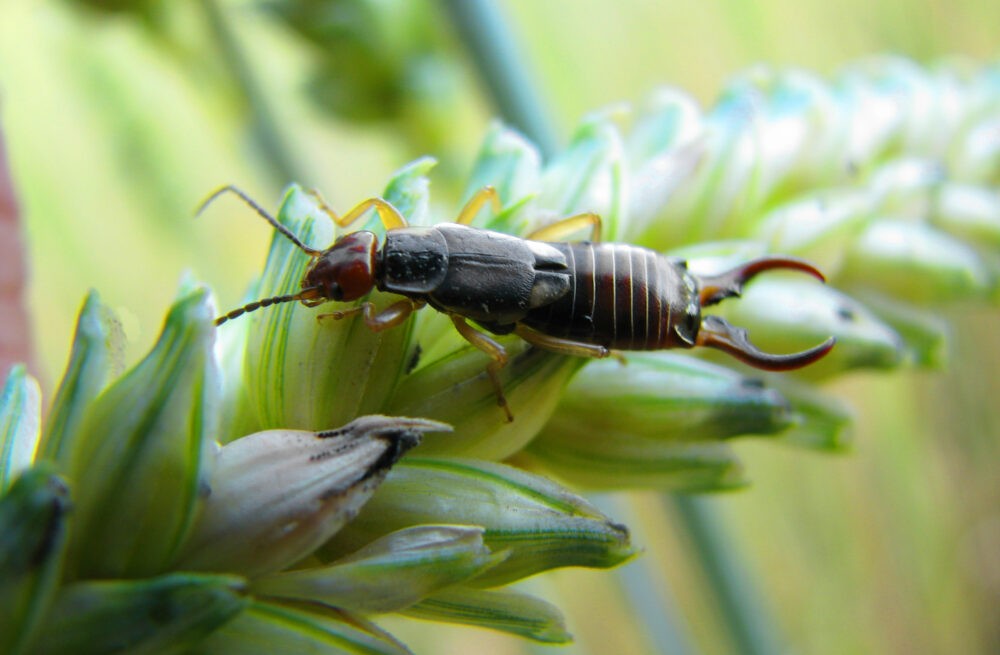Key Characteristics:
- Pincer-Like Appendages: Earwigs are characterized by forceps-like pincers at the end of their abdomen, often used for defense and mating displays.
- Night Activity: These nocturnal insects are primarily active during the night, seeking shelter in dark, damp places during the day.
- Flat Bodies: Earwigs have flat bodies and are typically brown or black in color.
Potential Risks and Concerns:
- Omnivorous Diet: Earwigs feed on a variety of organic matter, including plants, insects, and decaying materials.
- Garden Damage: Some species of earwigs may damage plants and flowers, particularly in moist garden environments.
- Indoor Intrusion: Earwigs may enter homes in search of shelter, especially during hot or dry periods.
Preventive Measures:
- Reduce Moisture: Address any moisture issues in and around the home by fixing leaks and improving ventilation.
- Remove Hiding Spots: Clear debris, mulch, and leaf litter from around the foundation to eliminate potential hiding spots.
- Seal Entry Points: Inspect and seal cracks, gaps, and openings in windows, doors, and walls to prevent earwig entry.
- Garden Maintenance: Regularly inspect and maintain your garden, reducing excess mulch and ensuring proper drainage.
- Outdoor Lighting: Consider using yellow insect-resistant bulbs in outdoor lighting, as earwigs are less attracted to these.
Professional Assistance:
If earwig populations become challenging to manage, consider seeking professional pest control services for targeted treatments.

